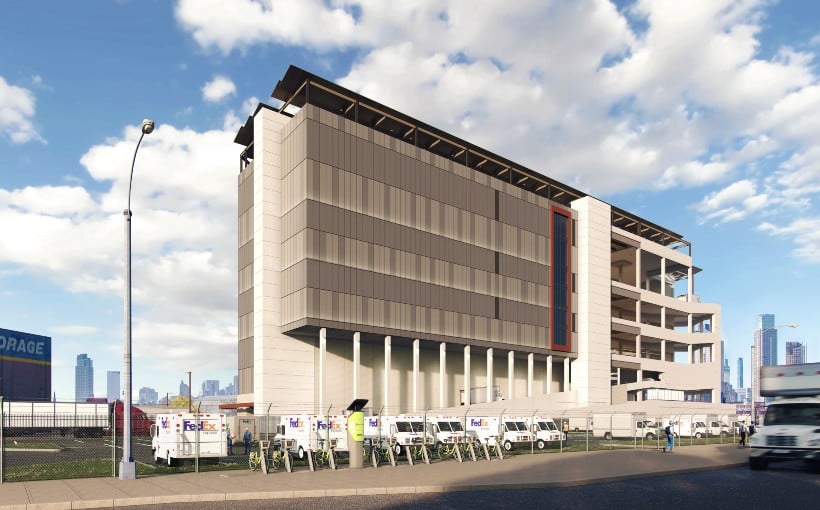This evidence is crucial in building a strong case and protecting the owner or developer’s interests.
Real estate attorneys are essential players throughout every stage of a property’s lifespan, from initial entitlements to eventual divestment. While disputes may not always arise during development projects, having legal expertise on hand can be instrumental in finding solutions when they do occur. Connect CRE recently interviewed Brad Porter, managing partner and owner of Houston’s Porter Law Firm, to discuss what typically happens next:
Q: The pandemic caused many construction delays; have developers seen improvement since then compared to pre-pandemic years?
A: Construction faced significant setbacks during the pandemic due to various challenges such as supply chain disruptions and labor shortages. As conditions have improved, developers are experiencing fewer delays than at the height of the pandemic.
The situation varies by region and sector; while there has been some progress since the peak of COVID-19, it hasn’t fully returned to pre-pandemic levels for most developers due to ongoing issues like supply chain problems and labor availability.
Overall though, while delays remain higher than before COVID-19 hit us hard last year – we’re seeing positive trends towards improvement.
Q: What factors commonly contribute towards project delays? Are regulatory hurdles primarily responsible or do other factors play a larger role?
A: Delays can stem from various causes including:
1) Supply Chain Issues – difficulties with material delivery due manufacturing bottlenecks or transportation problems;
2) Labor Shortages – insufficient skilled workers slowing down progress;
3) Weather Conditions – adverse weather disrupting construction activity;
4) Regulatory Hurdles – obtaining necessary permits/approvals causing timeline setbacks;
5) Financing Problems – funding-related issues halting work until resolved;
6) Design Changes – modifications made mid-construction leading new plans needing implementation time-wise,
7 ) Site Conditions– unexpected findings requiring additional work/permissions,
8 ) Coordination & Communication Problems– poor management/miscommunication among stakeholders disrupting schedules,
9 ) Contractor Performance – delays caused by missed deadlines or unsatisfactory work, and
10) Pandemic-Related Factors – health/safety regulations, worker illnesses and other pandemic-related disruptions introducing new delays.
While regulatory hurdles can contribute to project setbacks, they are usually just one piece of a larger puzzle. Supply chain issues and labor availability often play equally significant roles. The exact causes and their impact vary greatly depending on the specific project/location.
As an additional note: while builders may sometimes be caught off guard by unexpected regulatory obstacles during construction leading to delays; engaging with experienced attorneys beforehand ensures all relevant requirements are known in advance so that no surprises arise later on.
Q: How can construction attorneys help mitigate/minimize delays & facilitate other aspects of the process?
A: Attorneys negotiate contract agreements between stakeholders before projects officially begin; ensuring everyone is clear about who’s responsible for each aspect of construction. These steps preclude disputes arising from miscommunications/unclear contracts/potential defects down the line.
Involving an attorney early also helps map out completion paths for clients’ goals once understood at a high level; reviewing surveys/titles/documents determining if building is feasible at all (including researching/examining use restrictions not universally known). Legal teams assist with engineering/architect agreements/coordinating third parties handling feasibility/project analysis too. Once contractors have been selected – lawyers heavily involved in drafting contracts specifying which others will be working alongside them/task responsibilities/reporting/payment details etc.; vital to ensure correct build-out occurs as planned!
Q: What common pitfalls do such agreements face? And how do lawyers aid avoiding them?
A: Construction deals tend towards complexity so ensuring key elements included crucial first step! Amongst others things this document clarifies task responsibility/liability should anything go wrong – failure specify these elements leads major problems later!
Agreement outlines reporting requirements/specifies which contractors will work together/contains meticulous instructions for draw schedules/payment plans; being clear on everyone involved ensures all parties sign lien waivers. Attorneys also conduct exhaustive real property record searches checking no mechanic’s/materialman’s liens (M&M Liens) exist – if unpaid third party involved in construction can file a lien.
Lawyers specializing in construction/commercial real estate law have high familiarity with agreements knowing what elements need to be present for smooth process.
Q: Disputes can arise between contractors, neighborhood groups attempting to halt work or other parties – how best prevent these occurring? And how do owners/developers protect themselves when disputes occur?
A: Construction attorneys frequently see project-related disputes so know minor issues easily escalate without attention!
Experts periodically inspect sites and monitor progress ensuring necessary documents are place/benchmarks met before releasing funds; making sure everything done correctly crucial preventing certain types of dispute arising!
When they do crop up several steps taken – many contracts require all parties participate discussions first. Lawyers often get involved beforehand hoping negotiations resolve matters successfully! If unsuccessful next step mediation – more formal process involving neutral third party (often former judge/lawyer) helping reach resolution ideally through non-binding means.
If mediation fails private arbitration/public lawsuit likely next steps. Before filing owners/developers rely on lawyers gathering evidence via experts fully understanding projects’ issues – what went wrong why happened who responsible etc.; this evidence vital building strong case protecting clients’ interests!




